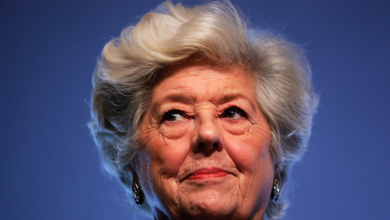‘Victim-blaming culture’ leading to missed opportunities to tackle spiking, MPs say

A “victim-blaming culture” could be leading to “missed opportunities” to collect vital evidence of spiking, according to an inquiry by MPs.
There are “few deterrents” for offenders as it stands, with barriers preventing victims from reporting and low prosecution rates, their report found.
The Home Affairs parliamentary committee launched an inquiry into drink and injection spiking last year following a wave of reports involving needles and nightclub boycotts calling for tougher action to stamp out the crime.
The final report highlights the experiences of victims – including how they were treated by authorities – and makes recommendations over how to better tackle the crime.
The MPs concluded “improvements in reporting, investigating and prosecuting spiking incidents” were “urgently needed” to support victims and deter offenders from committing the crime in the first place.
They found barriers to reporting included a belief the police would not do anything and not knowing where to turn.
Experts had told the inquiry spiking incidents get “underreported quite significantly”.
One of the committee’s recommendations was a national communications campaign to address this, which would tell people who think they may have been spiked what to do, where to go and to reassure them they would be believed.
But the report suggested the last point was something that could be improved upon. “Even when victims report the crime, a victim-blaming culture can compound trauma and mean missed opportunities to collect evidence,” it said.
Spiking victims have previously told The Independent they had been treated as if they were too drunk by bouncers and hospital staff, while charities and campaigners said incidents were often “dismissed” by police and the NHS.
The Home Affairs committee said there was “an urgent need for improved education and awareness around spiking across several sectors”.
The inquiry also looked into prosecution rates for spiking. Earlier this month, figures obtained by The Independent revealed fewer than 2 per cent of spiking offences had resulted in a charge accross a period of nearly five years.
“The level of prosecutions for spiking offences is very low, a key factor being absence of evidence in many incidents, arising from delay in reporting, insufficient forensic testing provision and difficulties in identifying and apprehending perpetrators,” the report said.
The MPs also pointed out there was no specific offence to prosecute spiking. “This, together with limited reporting, investigation and prosecution, means there are few deterrents for offenders,” they said.
Dame Diana Johnson, the chair of the Home Affairs committee, said: “It isn’t good enough to tell people to put lids on their drinks or normalise taking a testing kit out with you. Everyone should have the right to go out and enjoy themselves without fear.”
She said: “The message needs to be sent to perpetrators that spiking is absolutely unacceptable and will be punished.”
While the MPs welcomed the fact the government was considering making spiking a specific criminal offence, it said a “more pressing need” was data on perpetrators and their motives – which could help strategies to tackle the crime.
Rachel Maclean, the safeguarding minister, said the government would consider all of the report’s recommendations.
“As part of the Police, Crime, Sentencing and Courts Bill, the government has also committed to undertaking a wide-ranging review into spiking, and is considering whether further legislation is needed to help the police and courts better tackle the issue,” she said.





